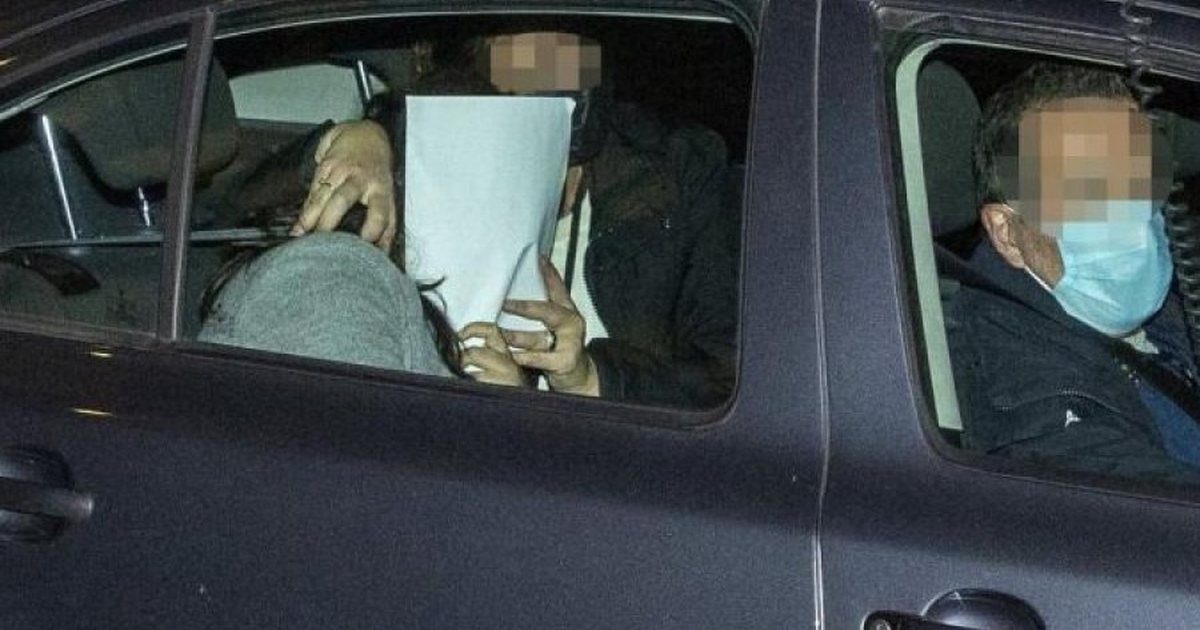Le Soir on Çopja clan, Albanian mafia empire dismantled in Belgium

Belgian daily Le Soir has published an extensive report on the dismantling of the Çopja clan, an Albanian mafia organization described as one of the most dangerous criminal networks in the world. After years of surveillance, international raids, and violent turf wars, the empire built by brothers Franc and Hajdar Çopja appears to have collapsed following a decisive operation in Albania in August 2025.
Why is this important: The Çopja clan’s trajectory illustrates how Albanian organized crime grew from local gangs in Albania or among the Albanian diaspora communities to a European-level powerhouse in cocaine trafficking, money laundering, and contract killings. Its dismantling required years of cooperation between Albanian police and law enforcement agencies in Belgium, France, Germany, the Netherlands, and Italy. The clan’s rise and fall, as detailed by Le Soir, underscores both the global reach of Albanian mafia structures and the risks posed if such networks are left unchecked.
Context: The final blow to the organization came in early August 2025, when Albanian police, working with European partners, arrested 10 trusted members of the clan. Authorities seized a hotel complex, villas with pools, luxury apartments, expensive cars, and €120,000 in cash. According to Le Soir, these were only “the tip of the iceberg.” The Çopja clan had been targeted in multiple operations before, but each time, international police “came back with their hands full of treasure,” revealing the extraordinary wealth of the organization.
The article traces the clan’s roots to Elbasan in 2007. Franc Çopja, then 17 years old and described by investigators as “extremely ambitious,” entered the drug trade, soon bringing in his older brother Hajdar. The pair quickly moved beyond small-scale dealing and made connections with Paraguayan cartels. Among them was Diego Benítez, a former football club director in Paraguay, later linked to a 16-ton cocaine shipment seized in Hamburg in 2021.
By leveraging rivalries among suppliers, the Çopjas secured favorable prices and set up cocaine refining laboratories in Brussels. This strategy allowed them to maintain control over production, reduce reliance on middlemen, and bypass customs. Within just five years, Albanian justice authorities noted, they were able to influence European market prices. In the 1990s, cocaine sold in Western Europe for €150 per gram; by the early 2010s, it had dropped to €60, a fall driven by surging South American production and the Çopjas’ aggressive market entry.
What else: The clan consolidated its presence in Europe through the strategic ports of Rotterdam and Antwerp, importing tons of cocaine hidden in soap, white paint, or construction materials. Classic mafia methods — bribery of dock workers, nighttime infiltrations, fake import-export firms — secured the flows. The proceeds were laundered through real estate, bars, restaurants, and construction companies in Albania. The brothers cultivated an image as investors, while their illicit empire grew across the continent.
Their wealth and ambition extended to Dubai, where Franc relocated the clan’s headquarters and built a luxury villa in the Dubai Hills neighborhood, valued between €1.5 and €7.8 million. According to one Albanian journalist cited by Le Soir, the clan invested a total of €200 million in Dubai.
Violent rivalries soon followed. The Alibej clan, another Albanian network with ties in Brussels’ Molenbeek district, challenged the Çopjas after a large cocaine shipment went missing on British shores. The Çopjas blamed Alibej leader Ardit Spahiu, sparking a bloody feud. Between 2019 and 2020, at least nine murders were linked to the conflict. Spahiu himself was assassinated in November 2020 in Brussels. Le Soir calls the killing of Spahiu — in broad daylight in the Belgian capital — a rare and brutal act that cemented the Çopjas’ reputation as one of Europe’s most violent mafias.
Breaking the network: Law enforcement pressure increased after 2021, when the encrypted messaging app SkyECC was dismantled. Believing themselves secure, the Çopjas had exchanged hundreds of messages on the platform. Once intercepted, these communications gave investigators unprecedented insight into their network. In October 2021, Belgian police deployed 1,100 officers to raid 11 cocaine labs, seizing 32 tons of drugs, Cartier and Rolex watches, and €7 million in diamonds.
Further blows followed. In July 2024, Europol coordinated “Operation Gorgona” in Tirana, arresting 15 suspected members of the clan and seizing €1 million in cash and numerous properties. The operation, named after the mythological creature that turned onlookers to stone, was another attempt to strike at the heart of the Çopja empire.
The turning point came in 2023, when Franc was arrested in Dubai under the false identity of Franc Gergely. He was extradited to Belgium aboard a private jet for security reasons. In 2024, his brother Hajdar was also arrested in the UAE. Today, Franc faces charges of murder, unlawful detention, concealment of bodies, threats, possession of explosives and weapons, and obstruction of justice — crimes that could bring up to 21 years in prison.
Despite these blows, the clan remained active, reinvesting in Albania and maintaining influence in Europe. But the August 2025 operation in Albania, Le Soir concludes, may finally have closed this chapter.
Next steps: Trials in Belgium are expected to decide the fate of Franc and Hajdar Çopja and their associates. For Le Soir, the coordinated Europol operations signal the probable end of the Çopja clan’s empire. Yet, the article warns, in the underworld of European organized crime, one empire’s fall often creates space for another to rise.


